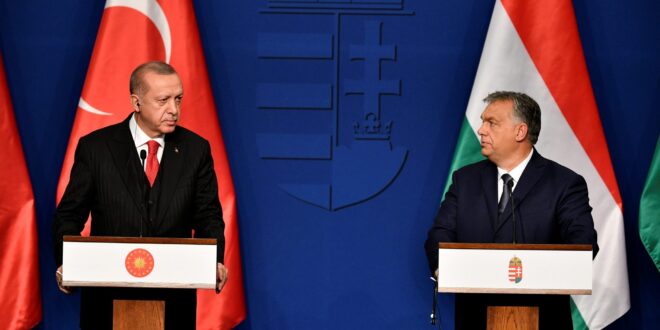Rights watchdog’s 50th anniversary report painted a bleak picture of the state of freedom in several countries in the region, although Kosovo bucked the trend.
The 2023 annual “Freedom in the World” report by rights organisation Freedom House says several countries in Southeast and Central Europe, except for Kosovo, saw a decline in freedoms.
The report, which is also the 50th anniversary edition, registered the 17th consecutive year of falls in global freedom but remained hopeful for the coming years.
“The global struggle for democracy approached a possible turning point in 2022. The gap between the number of countries that registered overall improvements in political rights and civil liberties and those that registered overall declines was the narrowest it has ever been through 17 consecutive years of deterioration,” the report on Thursday said.
Turkey registered one of the worst declines in terms of freedoms. It is classified as “not free” and lost 29 points in its aggregate score in the last 10 years without hope of recovery as long as Recep Tayyip Erdogan continues to rule the country.
“In Turkey, a failed 2016 coup attempt has cast a long shadow over political rights and civil liberties. President Recep Tayyip Erdoğan and his Justice and Development Party (AKP) used the incident to justify the removal of key democratic checks and balances and the elimination of political rivals,” Freedom House wrote.
The report added that this process continued in 2022, as Turkey prepared for pivotal presidential elections in the first half of 2023.
“Ahead of the vote, the government adopted a new law to control the selection of judges who will review challenges to election results, and approved a ‘disinformation’ law that could further stifle opposition campaigns and independent media,” the report added.
But Turkey was not alone in its decline in Southeast and Central Europe in the last 10 years.
Hungary is classified as “partly free” and lost 22 points in its aggregate score.
“The victory of Prime Minister Viktor Orban’s Fidesz party in Hungary’s April 2022 elections was facilitated by his government’s campaign since 2010 to systematically undermine the independence of the judiciary, opposition groups, the media, and nongovernmental organizations,” the report wrote.
It added that in both Hungary and Serbia, entrenched illiberal nationalist leaders reasserted their power: “Hungarian prime minister Orban defeated a united opposition front, winning a fourth consecutive term, and Serbian president Aleksandar Vucic secured a second five-year term after a decade in government,” it noted.
Serbia is also classified “partly free” and lost 18 points in its aggregate score just like neighbouring Bosnia that is also classified “partly free” and lost 10 points in its aggregate score.
Poland remained free but lost 12 points in its aggregate score. “The ruling Law and Justice party grappled with the European Commission over judicial independence concerns as it prepared for crucial parliamentary elections in late 2023,” the report said.
Kosovo was the only country in the region that saw real improvement. The newest country in Southeast Europe registered one of the sharpest gains in the world, going up four points in its aggregate score in 2022 despite also remaining only “partly free”.
Freedom House’s report ranks each country and territory from 0 to 4 on a series of 25 freedom indicators for an aggregate score of up to 100.
The report showed the Nordic countries of Sweden, Norway, and Finland were the most free in the world with scores of 100, while Tibet, Syria, and South Sudan were the worst.
 Eurasia Press & News
Eurasia Press & News




